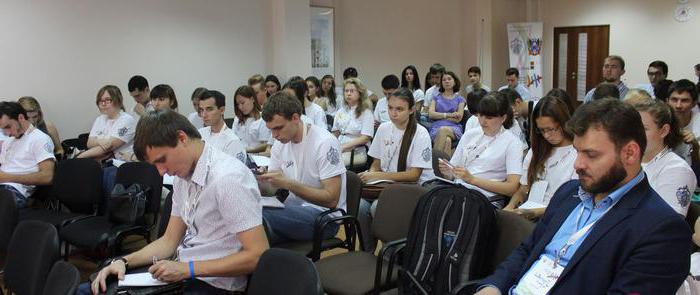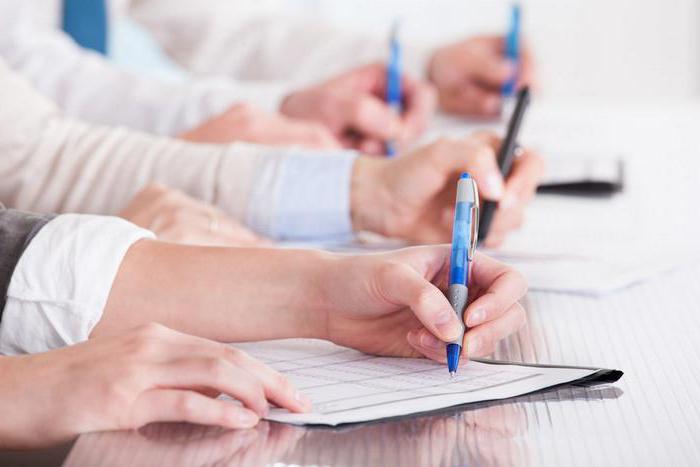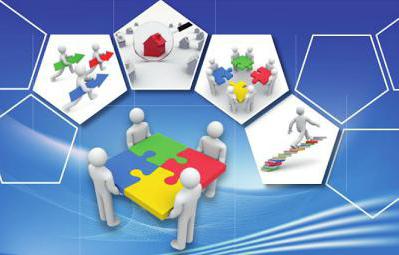The priority tasks in the framework of the pedagogical process today are monitoring and evaluation quality of education. For their implementation, an objective and transparent model for analyzing student achievement is created. 
Normative base
In modern conditions, competition is becoming increasingly relevant educational institutions. Institutions begin to "fight" for their students. In this regard, an independent assessment of the quality of education is of particular importance. On May 7, 2012, the President signed Decree No. 597. It regulates the implementation of the social policy of the state.
This document ordered the government and public associations Until April 1, 2013, jointly form a system of independent assessment of the quality of organizations that provide social services, determine the criteria for analyzing the effectiveness of their work, and introduce public ratings. In pursuance of the decree, Resolution No. 286 was adopted. This document approved the Rules for the formation of a system of independent assessment of the quality of activities of institutions providing social, including educational services. In addition, Decree No. 487-r adopted a plan of relevant measures.
Implementation of norms
The Ministry of Education and Science has developed and approved the Regulation on the system for assessing the quality of education. For its implementation, Methodological recommendations were adopted. In them:
- It is determined what an independent assessment of the quality of education is, the main users of the program are indicated.
- The forms in which events are held are described.
- Possible directions of using the program in the work of educational management institutions are identified.
- The sections describing the tools, the facility, customers and participants in the system, the procedure for using independent assessment tools to develop and approve management decisions are described.
Guidelines are of particular practical importance in the framework of the pedagogical process. The document describes not only the events themselves, but also the benefits that give the results of the procedures for all participants. These include parents, and the students themselves, and teachers, and heads of educational institutions. 
Key areas
An independent assessment of the quality of education is a procedure carried out in relation to the work of pedagogical institutions and the programs implemented in them. Its purpose is to establish the conformity of the services provided:
- The needs of individuals - consumers. These include, but are not limited to, parents of minors receiving additional, primary and basic general education, as well as pupils of preschool educational institutions. During the events, compliance is analyzed in terms of assisting in the choice of an educational institution, a pedagogical program that matches the personal capabilities of students, as well as determining the level of knowledge.
- The needs of legal entities, including the educational institution in terms of assessing the quality of program implementation, as well as the necessary adjustments based on the results of the examination.
- The needs of the founder, public associations and other institutions in the field of rating and other procedures for the further development and implementation of a package of measures aimed at improving the competitiveness of educational institutions.

Customers and Initiators
An independent assessment of the quality of education is carried out on request:
- the founder;
- local authorities;
- guides educational institutions;
- public regional chamber;
- educational management institutes of the federal, subject and municipal levels;
- individuals or organizations;
- parents
- public council at the municipal / regional executive body;
- public associations.
Customers of the independent evaluation procedure may be:
- head of educational institution;
- bodies of state power of the Russian Federation, of a subject or structure of local self-government;
- educational institution founder;
- parents;
- teacher of an educational institution;
- students in high school.
Objects of analysis
The system for assessing the quality of education can be aimed at:
- Pedagogical programs that are implemented in educational institutions.
- Education conditions, OS sites, etc.
- The results of the development of educational programs by students.
- The work of the executive bodies managing pedagogical sphere, local authorities in terms of organization of activities and development of educational institutions.

Measuring
To establish the level of development of the organization’s pedagogical programs, appropriate materials are developed based on:
- Customer requirements.
- Measuring tools of international comparative research.
- GEF requirements.
Instruments
The center for assessing the quality of education in its analysis can use:
- Public reports of municipal / regional government bodies, educational institutions.
- Ratings
- Statistics of official accounting, which are posted on a public electronic resource on the Internet.
- Other open information characterizing the conditions and course of pedagogical activity in an educational institution.
Information on the work of educational institutions posted in public access can be used in an independent evaluation with the approval of the participation of public institutions in this procedure. 
Responsible Entities
Assessment of the quality of education in a school or other educational institution can be carried out by such bodies as:
- A non-profit organization whose activities have a social focus and are carried out by specialists with the appropriate qualification level.
- A rating commercial agency that has experience in creating ratings of institutions.
- Center for assessing the quality of education.
- One or more experts with relevant experience.
- Social-professional, social, non-profit autonomous, non-governmental organization.
It is allowed to involve several performers monitoring the assessment of the quality of education. During the procedures, transparency must be ensured during the formation of an order for the evaluation of the work or results of the activities of educational institutions. The list of persons performing activities is posted on the official website of the regional government. An educational institution can independently choose those organizations that will assist it in obtaining an independent assessment.
Summary
Individual experts and the organization that perform the independent evaluation procedure, at the end of their work, analyze the identified results. Based on the results of analytical work, they develop recommendations for the further development of educational institutions, regional and municipal pedagogical structures. In addition, they create a methodology and draw up ratings, perform other procedures, prepare analytical reports, submit reports on the state of the pedagogical process. When implementing all measures, openness and public access to information should be ensured. 
The meaning of the results
The results obtained after the assessment can play a key role for a large number of stakeholders.Among them, in particular, the heads of educational institutions, parents, the administration of municipal, federal, regional government. The results should contribute to:
- The development of competitive conditions.
- Improving the quality of education.
- The discovery and dissemination of effective models for the organization of the pedagogical process.
- Preservation and improvement of a unified educational system, a variety of curricula.
Practical use
In accordance with the results obtained can be prepared:
- Management decisions at the level of the subject, Moscow region, educational institution. For example, this may be a program for the allocation of additional financing from the funds of the fund to support the quality of education, methodological and personnel support, and so on.
- Recommendations for:
- management structures at different levels;
- customer;
- public associations;
- parents
- students;
- teaching staff or one teacher;
- educational institution.
Important point
The head of the educational institution should study the Methodological recommendations for conducting procedures for assessing the quality of the educational process. In addition, he should familiarize them with all the participants in the process. Knowledge of the provisions of the document will contribute to more thorough preparation for upcoming events. Previously, the head of the educational institution may organize an internal assessment of the quality of education. If necessary, you can request an examination and use the results obtained during it to analyze the activities of the institution, develop a development plan, and identify priority areas. The results of the events will allow:
- Establish narrow areas of activity for the teaching staff and get the necessary recommendations.
- More effective conflict resolution.
- Organize activities to increase the competitiveness of the institution.
- Get an independent description of the work of a teacher, a group of teachers. This will allow you to plan further interaction with staff.

Teachers themselves, having the opportunity to request an independent assessment, can analyze their own activities, establish a professional level, and readiness to pass certification.
Benefits for Parents and Students
At the legislative level, these entities also had the opportunity to request an independent assessment of the quality of the educational process. Parents, in this way, can get reliable results of the children mastering the current curriculum. In addition, in accordance with the results of the events, they are provided with the necessary recommendations for further interaction with students, the educational institution itself, as well as individual teachers.
High school students who have received basic general education can also contact one of the competent organizations with a request for an independent assessment. During the event, they can pass either a survey or testing. Responsible organizations in the course of assessment activities use various forms and methods of analysis. Based on the results of the audit, the students will receive the necessary recommendations on creating an individual training plan, making adjustments to it, as well as on the prospects for receiving special (professional) education.






